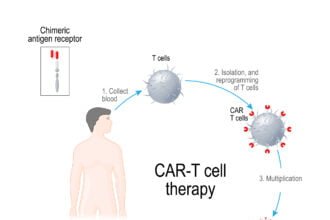Applied Behavior Analysis (ABA) is a therapy focusing on improving certain behaviors in individuals. It is used to help people with various conditions, including autism, ADHD, and learning disabilities.
ABA is a science-based approach that uses principles of behavior to help individuals learn new skills, reduce challenging behaviors, and improve their overall quality of life. This article will discuss the basics of ABA, its benefits, and how it is used to help people.
It will also discuss the different types of ABA and the qualifications needed to become an ABA therapist. By the end of this article, you will have a better understanding of ABA and how it can be used to help people.
What Is Applied Behavior Analysis?
ABA is used to treat autism and other behavioral disorders, like Fragile X syndrome. ABA uses the principles of behaviorism to help people learn new behaviors that are socially acceptable through positive reinforcement. In most cases, ABA will start with an individual’s unique needs and then focus on teaching them new skills at their own pace.
A trained therapist will work with the person diagnosed with autism over several months or years, depending on their age and developmental level. In some cases, it may be necessary for parents or caregivers, such as teachers or counselors, to participate in treatment plans created by therapists to improve social skills for children diagnosed with an autism spectrum disorder.
How Does APA Therapy Work
Applied behavior analysis is based on the principles of learning. It emphasizes positive reinforcement, which means that a person will learn to do something if you reward them for doing it. In addition, it focuses on environmental factors and observable behaviors, a great way to be sure you’re getting results.
APA therapy is also based on the idea that behavior is learned through experience rather than genetics or brain damage. This means that even if your child has autism or other developmental issues, he or she can still respond positively when given proper instruction and encouragement from his therapist in ABA classes at school or daycare centers across the USA.
The results of the ABA therapy depend on the therapists and programs you choose. According to Zippia, there are over 33,600 ABA therapists in the USA. Picking the right one from all those can be overwhelming. However, you can pick the best therapists if you consider the right things.
For instance, you must select someone who offers a fun and active approach to ABA. Additionally, the therapist or therapy firm must use tailored treatment programs for the best results. Tailored programs can help kids learn no matter their environment, be it clinics, school consultations, or elsewhere.
You can opt for someone like Learning Continuum or LC ABA. It takes the right approach to APA with the help of a small and active community. Moreover, it takes a flexible approach to treatment programs to cater to every child’s problems. This can prove effective in treating any condition.
Positive Impact of ABA on Health
ABA can help treat a lot of mental health conditions. Below are some of the conditions you can treat with the help of ABA therapy.
ABA Can Help Treat Autism Disorder
Autism, also called autism spectrum disorder, is a complex developmental disorder that affects communication, behavior, and social interaction. It is a common disorder affecting millions of children worldwide. According to World Health Organization (WHO) data, autism affects around 1 in 100 children. ABA therapy can help with the following symptoms of autism:
- Social interaction. Children with autism often do not pay attention, seem uninterested in others, or maybe very interested in only one person. As a result, they have trouble interacting with others. ABA therapy helps children with autism build their social skills by teaching them how to play alongside friends and interact appropriately with others.
- Verbal and nonverbal communication skills. Children with autism often struggle to make sense of spoken language and gestures and facial expressions that convey meaning. ABA therapists work closely with their clients’ families to teach these critical skills through repetition drills until they become second nature for your child.
ABA is very effective in treating autism, and many studies have proved it. One study published in the Journals of the American Association of Nurse Practitioners concludes that ABA can help improve cognitive scores in children with autism. According to the study, 65% of children had improved cognitive scores after ABA, compared to only 25% after electric treatment.
ABA Can Help Treat Substance Abuse
If you’re struggling with substance abuse, ABA can help. ABA is a treatment approach that focuses on helping patients understand the consequences of their actions and how they affect others. Applying this method to addiction treatment means that patients are encouraged to think about the effects of their drug use on themselves and others, which can be an effective tool in preventing relapse by increasing self-awareness. The goal is to teach individuals skills necessary for healthy decision-making while providing them with coping mechanisms when they experience stress or temptation.
A patient’s involvement in ABA therapy will depend on her specific needs and goals but may include the following:
- Learning positive behaviors through modeling
- Learning how to respond positively during difficult situations through role-playing
ABA Can Help Treat Hyper Anxiety Deficit Disorder
Applied Behavior Analysis can help treat various issues, from anxiety and depression to stress management, anger management, mood swings, sleep problems, and self-esteem issues. The goal of ABA is to identify the triggers for these symptoms so that you can learn what steps to take to avoid them or manage them better.
ABA uses behavioral rewards to encourage your child’s good behavior. He’ll become more confident as he learns how his actions affect others’ reactions and vice versa. He’ll also be able to communicate his needs appropriately, whether asking another child not to play with his toys or making sure someone else knows how hard he worked on classwork or homework assignments.
Behavior therapies like ABA can significantly positively affect your child in the long term. According to a study published in the Springer Journal, long-term behavior therapy can improve organizational skills, motivation, self-awareness, parental engagement, etc., in adolescents with ADHD.
Conclusion
ABA therapy has helped many people with different disorders, but it’s important to note that it is not a cure for any behavioral issues. If you or someone you know is struggling with a mental illness and would like to learn more about ABA, then speak with your doctor or therapist today.










